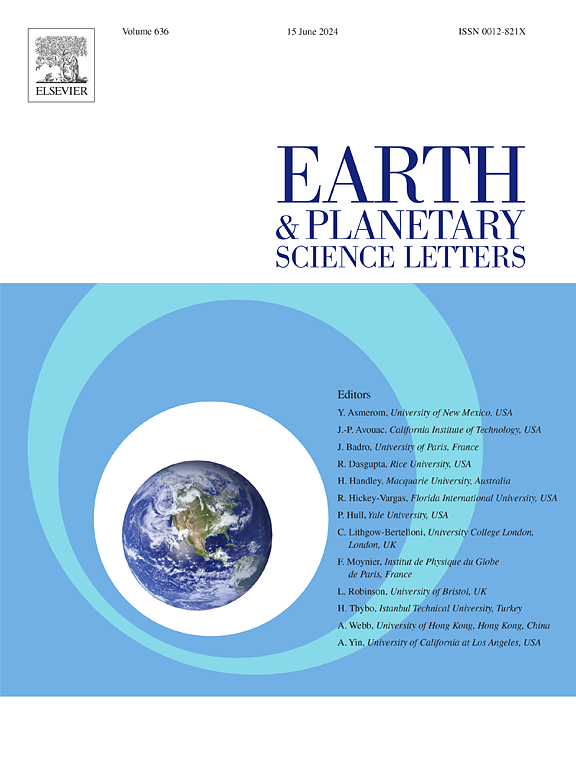Variations in antimony isotope and toxic metals across the Guadalupian-Lopingian (Permian) boundary at Penglaitan, China: Implications for the Emeishan volcanism and marine extinction
IF 4.8
1区 地球科学
Q1 GEOCHEMISTRY & GEOPHYSICS
引用次数: 0
Abstract
The Guadalupian-Lopingian (G-L) extinction event during the Permian stands a major diversity decline. The Emeishan Large Igneous Province (ELIP) has long been posited as the principal trigger, but direct geochemical evidence establishing a connection between these events has remained elusive. Here, we present antimony (Sb) concentration and isotope (δ123Sb) analyses conducted across the G-L boundary at Penglaitan, South China. Our investigation reveals a large spike in Sb concentration concurrent with a significant decline in δ123Sb values spanning the G-L boundary. The δ123Sb values range from −0.49‰ to +0.48‰ with the lightest values occurring at the main extinction horizon of marine benthos. Other toxic metals (As, Hg, Pb, etc.) are enriched in the same horizons and are likely of volcanic origin. Our estimates based on mass balance calculations indicate that the ELIP increased oceanic toxic metal loading by an order of magnitude. Their toxic effects may have contributed to stressed regional marine environment and biodiversity loss in South China during the G-L transition.
中国蓬莱滩瓜岛-珞巴(二叠纪)边界锑同位素和有毒金属的变化:峨眉山火山活动和海洋大灭绝的影响
二叠纪的瓜达卢佩-罗平(G-L)大灭绝事件造成了生物多样性的严重衰退。长期以来,峨眉山大火成岩带(ELIP)一直被认为是主要的触发因素,但建立这些事件之间联系的直接地球化学证据却一直难以找到。在此,我们介绍了在华南蓬莱滩进行的跨越 G-L 边界的锑(Sb)浓度和同位素(δ123Sb)分析。我们的调查显示,在锑浓度出现大幅飙升的同时,δ123Sb 值却出现了显著下降,横跨 G-L 边界。δ123Sb值范围为-0.49‰至+0.48‰,最轻值出现在海洋底栖生物的主要消亡层。其他有毒金属(砷、汞、铅等)在同一地层中富集,很可能来自火山。我们根据质量平衡计算得出的估计结果表明,ELIP 使海洋有毒金属负荷增加了一个数量级。它们的毒性效应可能导致了华南地区海洋环境的压力和生物多样性在G-L过渡期间的丧失。
本文章由计算机程序翻译,如有差异,请以英文原文为准。
求助全文
约1分钟内获得全文
求助全文
来源期刊

Earth and Planetary Science Letters
地学-地球化学与地球物理
CiteScore
10.30
自引率
5.70%
发文量
475
审稿时长
2.8 months
期刊介绍:
Earth and Planetary Science Letters (EPSL) is a leading journal for researchers across the entire Earth and planetary sciences community. It publishes concise, exciting, high-impact articles ("Letters") of broad interest. Its focus is on physical and chemical processes, the evolution and general properties of the Earth and planets - from their deep interiors to their atmospheres. EPSL also includes a Frontiers section, featuring invited high-profile synthesis articles by leading experts on timely topics to bring cutting-edge research to the wider community.
 求助内容:
求助内容: 应助结果提醒方式:
应助结果提醒方式:


